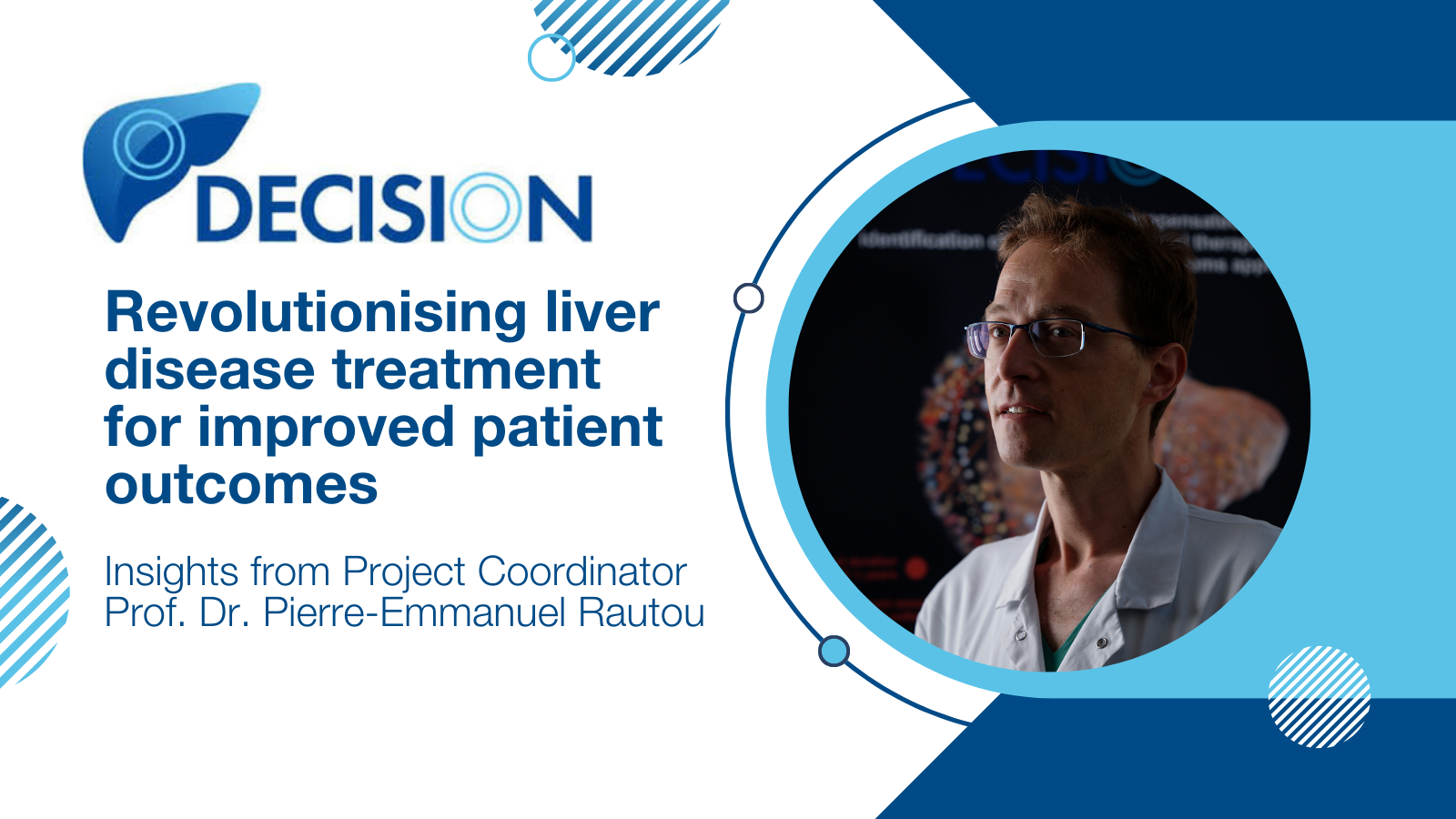DECISION: Revolutionising liver disease treatment for improved patient outcomes

The DECISION project, an EU-funded research initiative, is making significant strides in understanding the complex dynamics of acute decompensation of cirrhosis and its progression to acute-on-chronic liver failure (ACLF). In a recent interview, Prof. Pierre-Emmanuel Rautou, DECISION Project Coordinator, provided insights into its objectives, and collaborative efforts with the European Association for the Study of the Liver.
Despite standard medical treatment, a significant percentage of patients with acute decompensation of cirrhosis face poor outcomes. The DECISION project aims to bridge this gap by uncovering the inter-individual variability in patient responses and developing therapies based on factors such as genetics, gender, disease history and physiology. This is done by multi-omic profiling of already existing large and clinically well-characterised patient cohorts, and employing cutting-edge technologies including epigenomics, microRNA, transcriptomics, metabolomics, inflammatory mediators and extracellular vesicles.
“The ultimate goal is to significantly reduce mortality through combinatorial therapies that are tailored to the specific needs of individual patients,” says Pierre-Emmanuel Rautou.
Two key objectives include developing a prognostic test to identify patients who are at risk for poor outcomes following standard therapy and identifying a novel combinatorial therapy for patients with a predicted poor outcome.
DECISION has already yielded promising results, and with numerous papers from different work packages in the pipeline, it anticipates impactful findings within a year.
Work package 1 utilises state-of-the-art high-throughput technologies to characterise the epigenomic, transcriptomic, microRNA and metabolomic landscapes, together with circulating inflammatory mediators and extracellular vesicles profiles associated with outcome of decompensation of cirrhosis, by using samples from 1,400 patients with cirrhosis from the PREDICT and ACLARA cohorts. Among other findings, this has revealed the high predictive value of plasma extracellular vesicles for short-term mortality and pathophysiological insights from whole blood transcriptomics.
Work package 3 focuses on patient stratification, as well as the development of prognostic and response tests using systems approaches. A novel patient stratification method, identifying three clusters of acute decompensation patients has potential implications for future clinical trial design and will be submitted shortly.
Work package 4 is dedicated to selecting and validating novel combinatorial therapies using preclinical rodent models, including a newly developed rodent ACLF model, another manuscript that will be submitted soon.
Lastly, the upcoming COMBAT-trial, part of work package 5, aims to assess the safety and efficacy of a new combinatorial therapy based on the administration of human albumin and enoxaparin in patients with decompensated cirrhosis about to be discharged from the hospital.
EASL’s collaboration with the DECISION consortium has proven invaluable. “EASL’s expertise in distributing the latest scientific breakthroughs in hepatology and their broad reach play an important role in our strategy for disseminating and communicating our project’s results,” says Pierre-Emmanuel Rautou. The platform provided by the EASL Congress facilitates knowledge exchange among researchers, clinicians, and healthcare professionals in the liver disease research community.
“At the end of the project, we expect that the results obtained as part of DECISION will be taken into account in the new clinical practice guidelines our partner, EASL, might launch,” says Pierre-Emmanuel Rautou.
DECISION stands at the forefront of liver disease research, offering hope for patients with decompensated cirrhosis. By unravelling the complexities of this condition and tailoring treatments to individual needs, the project aims to significantly improve patient outcomes and contribute to a paradigm shift in the field of liver disease treatment. As DECISION continues to make strides, the potential for ground-breaking advancements in liver disease management becomes increasingly promising.
EASL serves as a consortium partner in various Horizon-2020 and Horizon-Europe projects by supporting their dissemination and communication activities. For more information about EASL’s current EU-funded projects see https://easl.eu/eu-funded-projects/ and visit the project websites to learn more.

